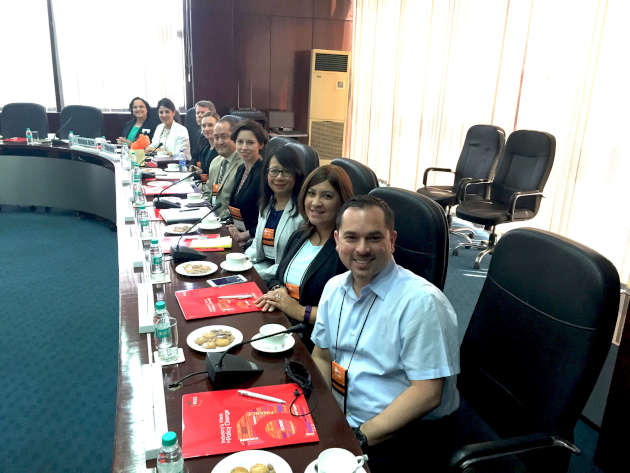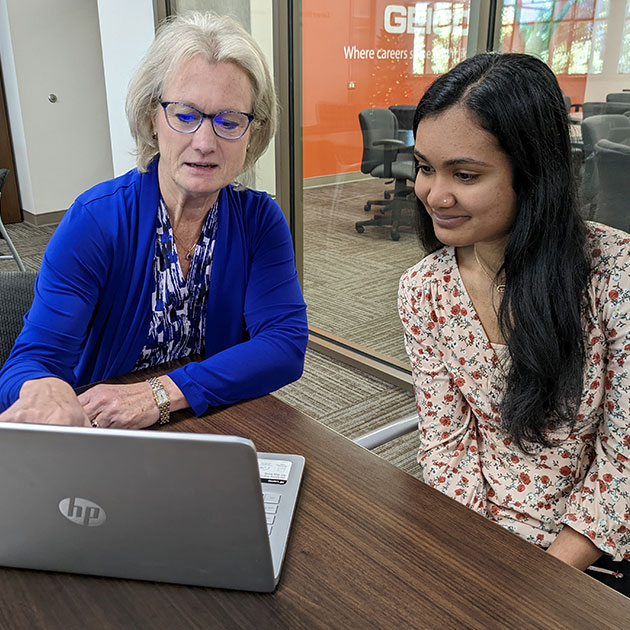Contents

The second in a series of posts by GLEMBA Class of 2016 members about their international study tour to India in April.
When anyone goes to a place as exotic as India, a common question is always: “What is it like?”
My Facebook wall is littered with questions from my friends and family wanting my feedback. I try to communicate my experiences to the best of my ability, but I’m afraid my words come off flat and two-dimensional.
How can I possibly explain what I have seen?
Do I describe the heartbreaking poverty in all of its naked hopelessness? How can I communicate the childlike excitement of millions of young entrepreneurs with nothing but a smartphone and a dream? Or the turbulent political change from an adolescent democracy that is still suffering from an identity crisis left over by centuries of British occupation and rule? Or even the confidence and success of world-class business owners who are making their mark on international business projects and are acquiring the knowledge and experience to compete with any Western or Asian counterpart?
How can I communicate in a single blog the complexities of doing business in India in a way that is accurate and one that can easily be understood?
When our GLEMBA team met with Sidharth Birla, the former president of the Federation of Indian Chambers of Commerce and Industry (FICCI), he described the complexities of India with the famous story of the Blind Men and the Elephant:
Once upon a time, there lived six blind men in a village. One day the villagers told them, “Hey, there is an elephant in the village today.” Being blind, they had no idea what an elephant was, so they decided that they would all go out and discover it for themselves.
“An elephant must be a lot like a pillar,” one blind man said out loud as he felt the massive leg.
“No,” another argued who was feeling the tail. “An elephant is like a rope!”
“It is obviously like a snake,” a third said feeling the slithering trunk.
A fourth felt the ear and argued that an elephant must be more like a giant fan. The fifth felt the massive flanks and belly and was convinced that an elephant was just a solid wall. Finally, the last argued that an elephant was clearly a spear as he felt the large tusk and the point at the end.
The six men began to argue, each insisting that he was right until a wise man heard them beginning to fight and asked them what was wrong. “We wanted to find out what an elephant is like, but none of us can agree,” they told the wise man. “Tell us who is right.”
“This is not a question of who is right and who is wrong,” he replied. “For none of you is right, and none of you is wrong. It is only your perspective that is limited.”
This is a great analogy, not only of India, but of FICCI as well, which represents the voice of more than 250,000 business units and more than 2.5 million public and private-sector members. FICCI works with almost every state and government agency in India to seek policy change regarding infrastructure, environmental issues, tax reform, finance, health insurance, disaster management — and the list goes on.
FICCI began more than 60 years ago when Mahatma Gandhi met with local business leaders and encouraged them to form a chamber. Mr. Birla’s grandfather was one of these founding members, and the federation has grown to be the largest and oldest chamber of commerce group officially recognized by the Indian government.
Today, FICCI is able to leverage its massive influence to lobby for reform of legislation that is still bogged down with antiquated colonial mandates from a century ago. The federation researches studies on current business trends and publishes them for business owners to stay informed of the issues facing not only their personal sectors but others as well.
In summary, FICCI is a chamber that allows 2.5 million voices to connect, share, analyze and influence policy change.
In a sense, federation members are those blind men and the elephant, each sharing their perspective to get a better understanding of reality.
And currently the reality is not easy for business ventures in India.
A recent study was published by the World Bank that ranked the ease of doing business in 189 countries. India was ranked at 130, behind Bhutan, Nepal and Sri Lanka. Some examples of the complexity are in things like how it takes, on average, 191.5 days for India to issue a construction permit. It takes Singapore just 26 days. It takes India more than 90 days to obtain an electrical connection. It takes South Korea 18 days. On average, it takes 29 days for a business owner to actually start a business. In New Zealand, it takes four hours.
Prime Minister Narendra Modi has made it his stated goal to see this current rank of 130 in the World Bank report to fall to 50. This goal came out of direct communications with men like Sid Birla and the other FICCI members.
In fact, the main drive behind FICCI is to influence policy change at every level to improve the business conditions in India. These efforts saw a dramatic change in 2014 with a massive shift in the political balance of power. For decades, Indian politics was dominated by entrenched power holders who were elected mostly due to their geographic regions rather than their stand on an issue. In 2014, voters demanded change be made to ensure a better livelihood.
For the first time, issues such as the complexity of the tax code, bankruptcy laws and the misapplication of the law by bureaucratic agencies that have been isolated for decades can now be addressed and streamlined. By 2019, every government agency must be online and offer their services in a digitized platform. This will vastly improve the ease and communication between the layers of government and will eliminate many of the current barriers to business ventures in India.
Between these massive political changes and the demand from an active base of voters demanding a better life, it is not unreasonable to believe that in the near future India will confront these issues and truly find solutions to these complex problems.
And when that happens, 1.25 billion Indians will have the means and the opportunity to finally come closer to their full potential as global business leaders.
Read the first post about the GLEMBA Class of 2016 international study tour to India: GLEMBA Class of 2016 Tour of the Taj Mahal and Agra Red Fort.






